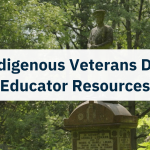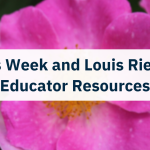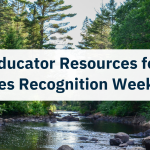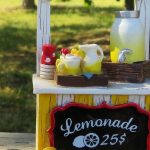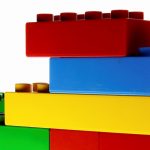Decolonizing Literacy: Creating Culturally Relevant Lessons
Learning Bird works with schools and communities to find learning paths for learners who may not always succeed in traditional classrooms. One of our recent collaborations with Garden River First Nation addressed a challenge Indigenous learners face: struggling literacy rates. We worked together to create resources for an English course that supports learners’ literacy. Our goal as a collaborative team was to create meaningful community-specific and culturally-relevant learning objects for their English curriculum.
Self-Esteem
In a 2008 report, Dr. Pamela Rose Toulouse notes that regardless of the particular topic, the self-esteem of Indigenous learners plays a pivotal and undeniable role in their overall school success. Toulouse’s work asks, “How can schools support Aboriginal student success?” Toulouse recognizes that the answers are found outside the classroom. Success touches all aspects of a learner’s life. The Ontario Native Literacy Coalition further echoes this sentiment within reading and writing. It bases its work on the principle that an individual’s employment, health, safety, happiness, and confidence are strongly intertwined with their literacy level.
Literacy Skills
Learning literacy skills often come about by practicing those skills. Usually, when educators introduce a skill, they also provide accompanying examples. We worked together with Garden River First Nation to create a series of literacy and reading lessons that met ELA curriculum standards. The lessons incorporated examples directly from the stories, literature, and photographs Garden River First Nation provided. This brings the learning objects closer to home and makes them more relevant to Garden River First Nation learners. They offer new perspectives to other learners and educators.
Our shared objective was to create material for learners to pass a provincially-mandated course. Further, it was important to help Garden River First Nation’s learners excel beyond that course. We are creating a series of culturally relevant and individually meaningful tools that honour them, their history, and community. That is something that Toulouse singles out as being fundamental for learners’ self-esteem and success.
Culturally Relevant Learning Materials
There is something really exciting about having a collection of resources, images, and sound files from a community available at your fingertips. Not to mention the honour to do something valuable with them for an even wider group of people. Looking through these files’ stories, places, names, and faces, we understood that they were not just a pile of documents to turn into content. Garden River First Nation entrusted us with its cultural materials and the pieces of its history. The community asked us to introduce a new piece to help continue that story by supporting literacy.
Decolonizing Literacy
We have found that the best way to decolonize literacy in classrooms is to maintain a steady dialogue with the community itself. We must listen intently to their needs, integrate familiar and meaningful resources, and ensure the school resources we build together respect and celebrate the past, present, and future. For example, along with the other resources that Garden River shared, they included a historical account written by community member Dr. Karl S. Hele.
Because of this, we asked to contact Dr. Hele and arranged a recorded interview of his experience in putting the project together and his professional advice for young writers. The audio from this interview became the basis of a video lesson on Research Strategies. With Dr. Hele’s stories and advice, we could re-contextualize a curriculum-mandated writing exercise as a project. It can originate in the learners’ environment, have a tangible impact on the people around them, deepen their knowledge of their community, and illuminate a potential career path.
Holistic Learning
Whether through the work of academics like Dr. Toulouse or communities that we are so fortunate to get to know, it’s evident that academic success in literacy and other domains is intimately connected to a holistic vision of self-esteem. If we want to support literacy further, it’s clear that we need to begin with content that puts the learner first and makes it explicit that their personal universe is as valid as the world of standardized evaluations and tests.
If you would like to learn more about how providing learners with access to content that reflects their communities and cultures and presenting information inclusively increases engagement and learning, we invite you to contact us.



